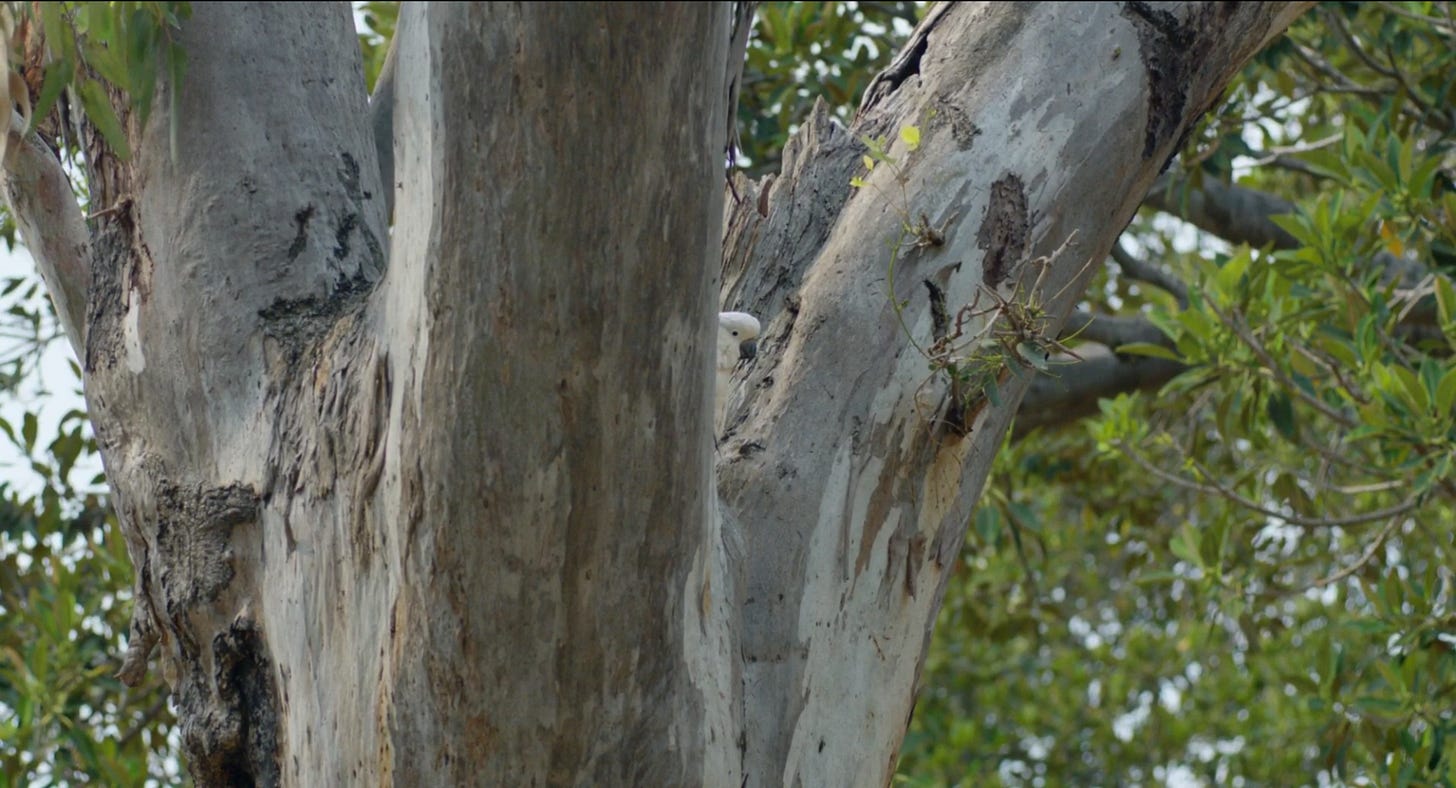Watching
Friends and Strangers (2021)
“What about the Aboriginees?” a woman asks a tour guide near the end of Australian director James Vaughan’s debut feature. “Are they around here or what?”
One of the more interesting things that Friends and Strangers is about is the question of the indigenous peoples of Australia. The opening credits consist of titles …




